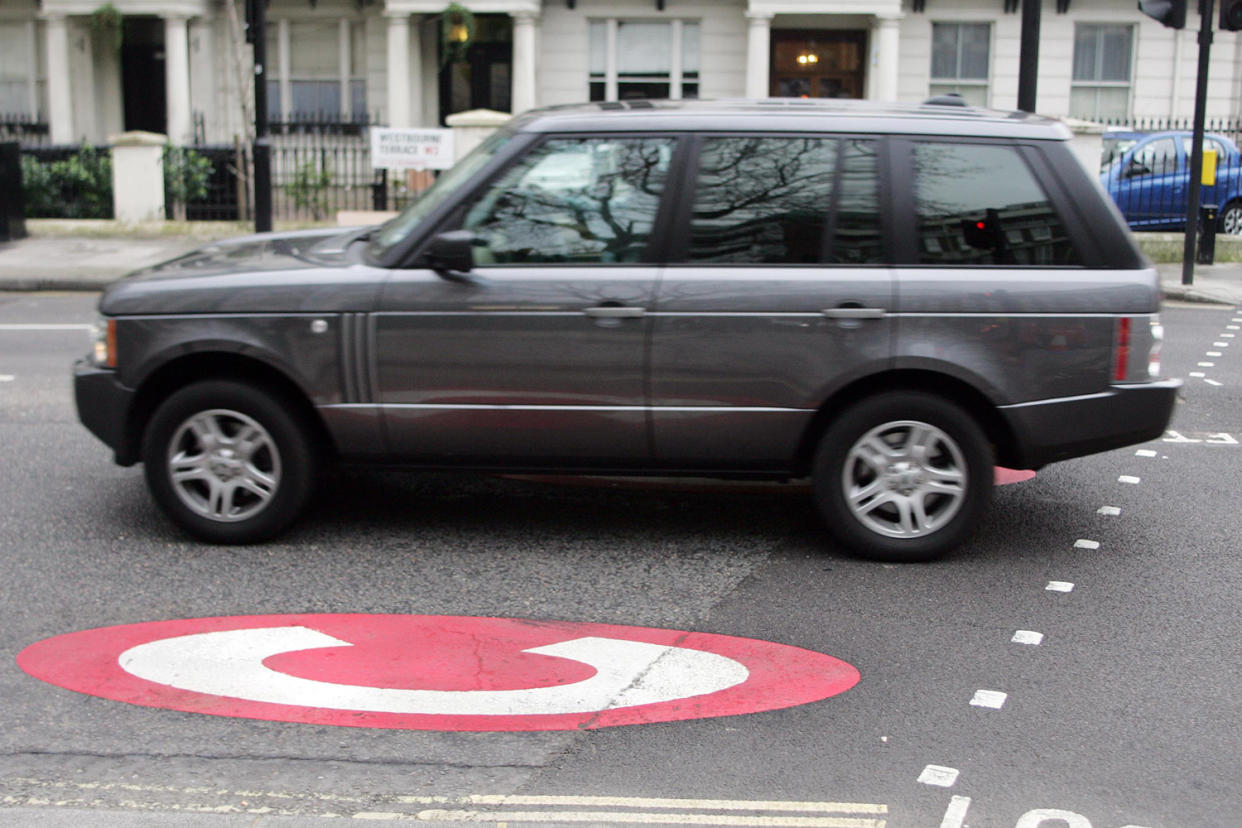Letters to the editor: Road pricing makes travel better

The London Assembly transport committee is right to call for road-pricing [“Congestion on roads now so bad that C-charge is ‘no longer fit for purpose’ ”, January 19].
Congestion in London costs business billions of pounds every year. We need urgent action, and market-led road-pricing is the right solution. Currently the congestion charge is too low and inflexible — it should be higher during rush hour and lower for the rest of the day. If we made that change, it could encourage vehicles to wait until roads are less busy.
The evidence is clear — road-pricing works. In Singapore, rush-hour traffic flows at a spritely 20mph. Compare that to London, where the average traffic speed has fallen to a painful 7mph.
Let’s bring in real road-pricing and put London in the fast lane.
Sam Dumitriu, Adam Smith Institute
Anyone who sees the dark pall of smog over London will know it is right to warn people about the capital’s dirty air, but we must also encourage people to leave cars behind. Other major cities such as Paris restrict vehicle use or reduce the cost of public transport.
Sadiq Khan should take up the London Assembly’s suggestion to introduce a pay-as-you-drive scheme across the city. The charges could be higher for more congested roads and more polluting vehicles.
The Mayor would then have the ability to discourage traffic on bad air days by raising the charge and using the money to reduce fares.
Jenny Jones, House of Lords (Green)
When the congestion charge was first introduced, it made significant changes to the way people travelled around central London. The decrease in traffic gave space and allowed greater investment in walking, cycling and public transport.
That was almost 14 years ago. It is time to look again at how we pay to use the roads in London. Motorised traffic impacts on the health of all Londoners through traffic noise, air pollution and discouraging physical activity.
A smarter road-pricing scheme for London would be one that actually reduced traffic and resulted in a healthier London for everyone.
Tompion Platt, Living Streets
Hats off to the Evening Standard for highlighting the polluted air we breathe in some parts of London.
The situation has reached a critical level, whereby we are advised to take appropriate measures to protect ourselves and to “avoid pollution-clogged roads” [“Londoners urged to limit activity as Mayor issues pollution red alert”, January 19].
Perhaps we should take a lesson from those who live in parts of Asia, who use simple anti-pollution masks to cover their noses and mouths. I would happily wear one in central London if I knew it to be effective.
George Demetri
Trump protesters have every right
Protestors had every right to show their discontentment before the inauguration of Donald Trump. Clearly, there are many people who believe he is not worthy of the role of President of the United States — I am one of them.
Trump is a ruthless businessman and nothing more. He has no political background and has already backtracked on many of his policies. Over the next four years, America will be led by a man who wanted to build a wall between the US and Mexico to curb immigration. This kind of xenophobic, backward thinking will only eradicate Barack Obama’s hard work to promote equality.
I hope that when Trump’s reign comes to an abrupt end, the American people will realise their error in supporting such a divisive character.
John Miles
Until he’s served time in office, no one knows what sort of a President Donald Trump will be. I am neither for nor against Trump, but the election is over and done now so what will protesting achieve? He will surely be voted out in the fullness of time if he turns out to be useless.
Izzy Burberry
No evidence behind single-market spin
Theresa May’s spin doctors may have promised that she would spare the City a “cliff-edge Brexit”, but the Prime Minister’s actual speech gave no such assurances, either on passporting for financial services or the free movement of people, on which London’s prosperity depends.
That the damage done by Brexit will be “phased” is no reassurance. She also neglected vital strands of the economy in my constituency, such as tech firms and the creative industries. Withdrawing from the single market will devastate London’s economy, and no amount of rhetoric will guarantee that jobs will be secure after we leave.
This isn’t the Brexit people voted for. That is why the Liberal Democrats will fight to stay in the single market.
Sarah Olney, Lib-Dem MP for Richmond Park
Dogs need proper care, not day care
I was distressed to read about the death of a miniature dachshund [“Bulldog killed my puppy at pet day care centre”, January 18]. The owners admitted that they were often away.
They are not alone. The latest statistics from the vet charity PDSA reveal 63 per cent of owners lack the time to look after their dog.
Day care and kennelling should only be a occasional part of a dog’s existence. Until owners take more responsibility for their animals, incidents like this will continue.
Charlotte Kasner, Campaign for Responsible Dog Ownership
County lines’ stem from wider issues
We welcome the call to tackle the growing problem of “county lines” [“London’s drug runners aged 12,” January 19], by which drug-trafficking gangs expand their networks. St Giles Trust’s SOS Project, which helps young Londoners make a safe exit from gangs, has seen this grow.
We agree that a national approach is key to tackling the problem, but it is vital that we address the underlying issues — such as poverty and a lack of family support — that lead young people to get caught up in county lines; otherwise, they will continue to be exploited.
Junior Smart, St Giles Trust

 Yahoo News
Yahoo News 
